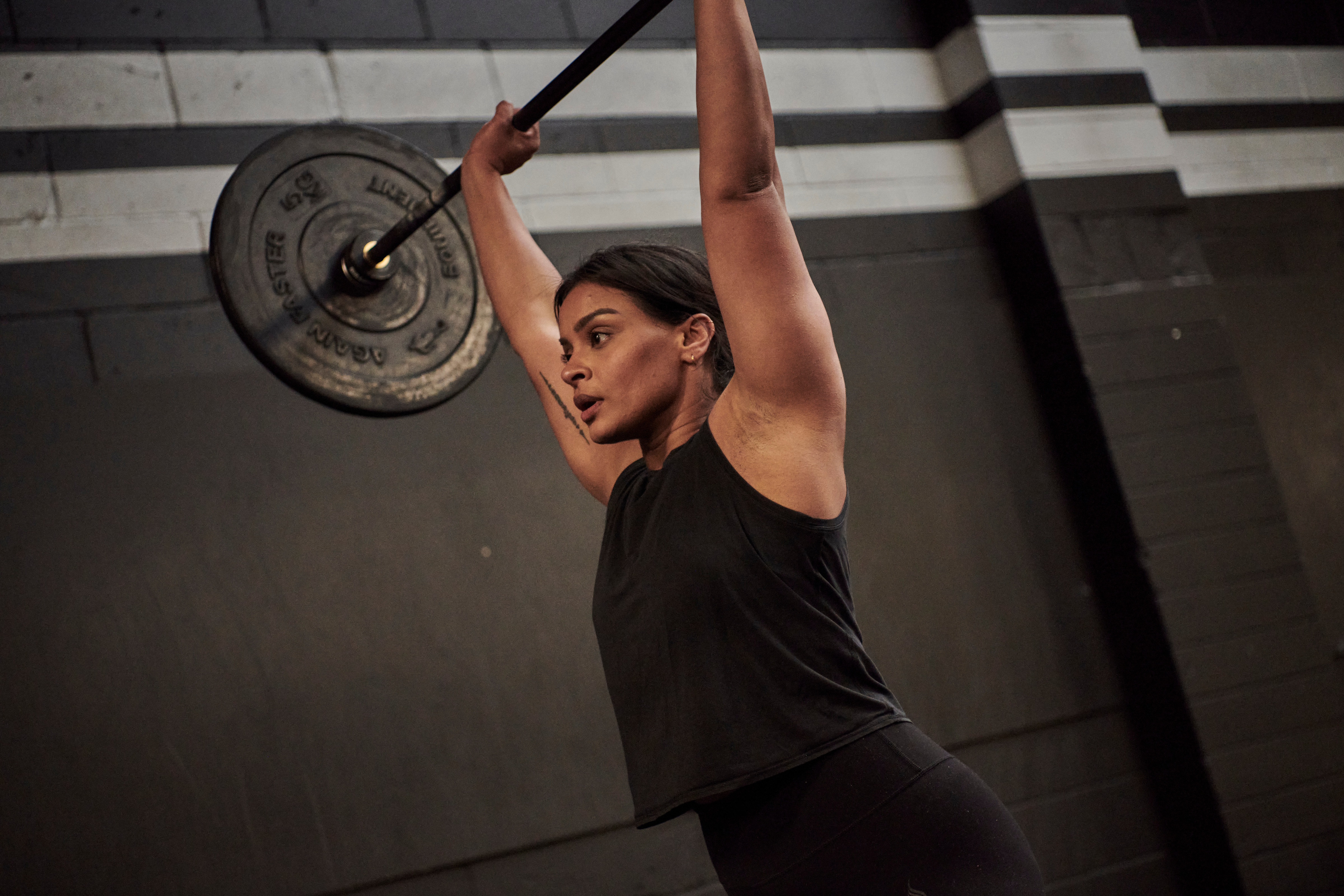Menstrual cycle recap
Let’s start by recapping what we need to know about the menstrual cycle. The cycle can last from 21 to 35 days and is split into 2 key phases, the follicular phase and the luteal phase. The follicular phase starts with the first day of menstruation (bleeding) and finishes with ovulation, and the luteal phase runs from ovulation until bleeding starts again.
In the follicular phase, a follicle containing an egg develops in the ovary. This follicle releases the hormone oestrogen, which triggers a surge in another hormone called LH. This results in ovulation, or the release of the egg.
In the luteal phase the egg travels along the fallopian tube into the uterus. The now empty follicle releases a hormone called progesterone which acts to prepare the lining of the uterus for possible pregnancy. If pregnancy (fertilisation) doesn’t occur, then oestrogen and progesterone levels drop, and menstruation (bleeding) happens.
Key hormones
In the early follicular phase, oestrogen and progesterone levels are both relatively low, but by the late follicular phase oestrogen levels are peaking, and testosterone levels also reach their highest level.
In the mid-luteal phase, progesterone levels are at their highest. In the late luteal or pre-menstrual phase, all hormone levels drop.
How does cycle phase affect performance?
Contrary to common beliefs, the evidence we have currently does not show that menstrual cycle phase has a significant effect on athletic performance, including sprints, peak power, strength and aerobic (endurance) performance. (Colenso-Semple et al., 2023; Dam et al., 2022; Sung et al., 2014)
Studies have shown that variations in strength and power are associated with psychological wellbeing rather than hormone levels. So, although potential performance is unchanged throughout the menstrual cycle, perceived changes in fitness, effort, motivation and the presence of symptoms do vary, which can have an impact on training outcomes. Rather than the hormones themselves, it is how the body responds to these hormones that can impact training, and this can differ greatly between individuals.
Athletes commonly perceive performance to be impaired in late luteal and early follicular phases i.e. during PMS and menstruation, coinciding with the occurrence of symptoms. Common symptoms can include:
- Fatigue
- Lethargy
- Menstrual cramps or pain
- Bloating
- Breast tenderness
- Mood changes such as depression and reduced motivation
- Headache
- Muscle soreness
- Sleep disturbance
- Cravings
Symptoms have been found to influence perceived performance of aerobic fitness, muscle strength, mental sharpness, balance, and sleep quality.
This perceived impairment in performance at these times is not universal however, and some athletes feel more symptomatic around the time of ovulation, whereas others feel no different across the cycle. The phase following bleeding (mid-follicular) is most commonly considered the best phase for perceived fitness and performance, but again, some athletes feel stronger during the ovulation, and some during menstruation.
(Carmichael et al., 2021; Ekenros et al., 2022; Prado et al., 2021)
So how can I apply this to me?
The key take-home from what we have discussed is that everyone is different, and individuality is key. By tracking your own symptoms, you can take the control into your own hands and make the most of your training. A symptom diary is a really good way to identify patterns, for example noting that the 2-3 days before your period you feel more fatigued, or that the week after your period your weightlifting feels great.
If you have a coach, then you can let them know about these variations so they can adapt your training accordingly, or if you are following a programme or classes then you can use this understanding to make the most of your training. If a max out session comes up during the time you know you normally feel fatigued, then you can give yourself some grace and understand that hitting 80-90% might be a win for that day. If you have heavy lifts or a range of weights programmed for the days you know you normally feel strong, then that might be a great time to push yourself.
Getting to know your body and what works for you will help you get the most out of your training and optimise your performance.

Carys Webster is an NHS doctor who graduated from the University of Leicester in 2014 with a degree in Medicine, MBChB.
Her passion for training and preventative medicine led her to complete a Masters degree in Sports and Exercise Medicine in 2022.
Alongside Carys' NHS role she currently works with British Gymnastics, Premiership Rugby and the Department of Health in their Physical Activity promotion campaign.
@caryswebster
References
Carmichael, M. A., Thomson, R. L., Moran, L. J., & Wycherley, T. P. (2021). The impact of menstrual cycle phase on athletes’ performance: a narrative review. In International Journal of Environmental Research and Public Health (Vol. 18, Issue 4, pp. 1–24). MDPI AG. https://doi.org/10.3390/ijerph18041667
Colenso-Semple, L. M., D’Souza, A. C., Elliott-Sale, K. J., & Phillips, S. M. (2023). Current evidence shows no influence of women’s menstrual cycle phase on acute strength performance or adaptations to resistance exercise training. In Frontiers in Sports and Active Living (Vol. 5). Frontiers Media S.A. https://doi.org/10.3389/fspor.2023.1054542
Dam, T. V., Dalgaard, L. B., Sevdalis, V., Bibby, B. M., Janse De Jonge, X., Gravholt, C. H., & Hansen, M. (2022). Muscle Performance during the Menstrual Cycle Correlates with Psychological Well-Being, but Not Fluctuations in Sex Hormones. Medicine and Science in Sports and Exercise, 54(10), 1678–1689. https://doi.org/10.1249/MSS.0000000000002961
Ekenros, L., von Rosen, P., Solli, G. S., Sandbakk, Ø., Holmberg, H. C., Hirschberg, A. L., & Fridén, C. (2022). Perceived impact of the menstrual cycle and hormonal contraceptives on physical exercise and performance in 1,086 athletes from 57 sports. Frontiers in Physiology, 13. https://doi.org/10.3389/fphys.2022.954760
Prado, R. C. R., Silveira, R., Kilpatrick, M. W., Pires, F. O., & Asano, R. Y. (2021). The effect of menstrual cycle and exercise intensity on psychological and physiological responses in healthy eumenorrheic women. Physiology and Behavior, 232. https://doi.org/10.1016/j.physbeh.2020.113290
Sung, E., Han, A., Hinrichs, T., Vorgerd, M., Manchado, C., & Platen, P. (2014). Effects of follicular versus luteal phase-based strength training in young women. SpringerPlus, 3(1). https://doi.org/10.1186/2193-1801-3-668


